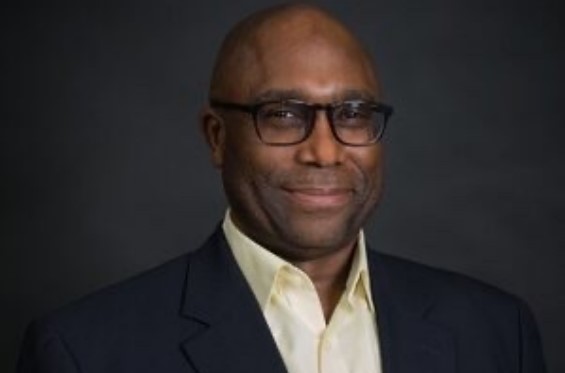By Joseph Williams
In Georgia four years ago, Stacey Abrams was well positioned to make history as the first Black woman in the U.S. to ever occupy a governor’s mansion. Running neck-and-neck with Gov. Brian Kemp, a White Republican, heading into election day, Abrams had the Black vote largely behind her, and many believed it would power her to victory.
Joseph Williams is a veteran journalist, political analyst and essayist who lives and works in metro Washington, D.C. This week, he discusses Vice President Kamala Harris’ run for president and the Black men who will have to support her if she is to win the race. (Courtesy photo)
Political analysts and pundits, however, detected an Achilles’ heel: polls repeatedly showed her struggling to fully win over Black men, a constituency that most believed were politically aligned with her. Her outreach, though, came too late in her campaign and she lost to Kemp by 8 percentage points.
Now comes Vice President Kamala Harris, the first woman of color to hold the office, and the parallels between her and Abrams are hard to miss. Like Abrams, Harris is a Democrat and well-positioned to win a tight, highly consequential election. Like Abrams, Harris has generated excitement and enthusiasm, particularly among Black women voters, who see themselves in her.
Sign up for our Daily eBlast to get coverage on Black communities from the media company who has been doing it right for over 130 years.
And, like Abrams, it’s unclear whether Black men — feeling politically frustrated, unempowered, and disillusioned to the point of skipping elections — will fully support a Black and South Asian woman presidential candidate, even if her run for the White House makes history.
Considering the question, Mondale Robinson, founder of the Black Male Voting Project, told ABC News that Black men feel abandoned and ignored by both political parties, until the next election comes around. They vote, he says, but feel politicians have given them little in return.
]]>
“There’s no apathy in Black men. There’s a level of antipathy,” he said. “Antipathy is a whole different emotion. You hate what politics is and does because you’ve not seen the growth, or benefit of it. Black men are not better off because of politics.”
But data also suggests a strain of lingering sexism could have been a factor in Abrams’ struggles with Black men — and a potential pothole for Harris’s groundbreaking run.
A 2023 survey on gender attitudes by PerryUndem, a public attitudes research firm, found that 4 in 10 Black men don’t agree that the country would be better off with more women of color in elected office, 48 percent believe women are easily offended, and nearly half think society punishes men “for acting like men.”
Dr. Moya Bailey, a Northwestern University professor, told The New York Times that patriarchy is not unique to the Black population, but “the consequences are much higher” in what’s seen as a do-or-die race against Trump.
]]>
There are other troubling signs for Harris, including disparities when Black men do show up at the ballot box. According to the Pew Research Center, Black women vote at higher rates than Black men, and are overwhelmingly more likely to choose the Democratic Party. In the 2020 presidential election, for example, 95 percent of Black women voted for Biden, while 13 percent of Black men voted for Donald Trump, Harris’s opponent.
To be clear: Black men still vote in large numbers, and, like most Black women, tend to vote for Democrats. While the differential between Black men and Black women may seem small, it could make a big difference in Harris’ race against Trump, an election most experts believe will be won or lost at the margins.
“As Kamala Harris inherits the presidential campaign of Joe Biden, she also inherits his sagging poll numbers with working-class Black men,” Roger House, an American studies professor at Emerson College, wrote in an essay for The Hill. “The historic nature of Harris’s candidacy will be viewed by many Black male voters as cold comfort unless she finds a way to address their material and cultural concerns.”
Then there’s Harris’s past career as a prosecutor in California, a background that has Black men wary of her. Disinformation and misinformation have spread on social media that Harris contributed to the over-incarceration of Black men, locking up tens of thousands of them. It’s an incorrect notion her campaign has tried to dispel.
]]>
An analysis by The Marshall Project found Harris’s record is more nuanced: on the job, she advocated for progressive criminal-justice policies, including re-entry programs for the formerly incarcerated. Politically, however, she adopted a tough-on-crime stance when critics accused her of coddling criminals.
Of course, not every Black man will vote for Harris but there are positive signs a majority know what’s at stake in November and plan to cast a ballot for her.
Not long after Harris replaced Biden at the top of the Democratic presidential ticket, a virtual fundraiser called specifically for Black men drew 40,000 participants who poured more than $1 million into her campaign coffers.
“Sometimes as Black men we get confused as to what strength is, and sometimes we think that standing behind a Black woman as a leader does not display strength as Black men,” said Illinois Attorney General Kwame Raoul, who spoke on the call. “I’m here to tell you all tonight that it does the opposite of that: it displays strength.”
]]>
Mr. Raoul then cut to the point. “I’m standing behind a Black woman to be president of theUnited States, and it doesn’t make me any less of a Black man,” he said. “I’m asking all of you all to do the same.
For her part, Harris has personally reached out to groups and organizations that speak to Black men, held White House listening sessions with influential Black business leaders and pledged to earn their vote — not take it for granted.
“There is a trope in this election which I take issue with, because the underlying premise suggests that Black men should be in the back pocket of Democrats,” Harris told The Nation magazine in an interview last month. “And that is absolutely unacceptable. Here’s why: Why would any one demographic of people be different from any other demographic? They all expect you to earn their vote! You’ve got to make your case.”
This article was originally published by Word in Black.
Get your AFRO A CARD today!
Help us Continue to tell OUR Story and join the AFRO family as a member. Members will receive exclusive journalism, and directly support the future of the AFRO. You can choose from three membership plans below.



